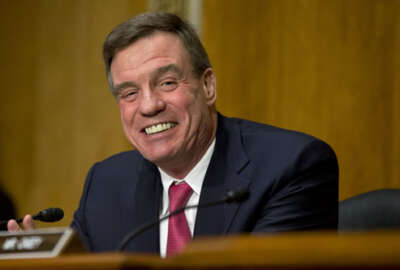
Wanted: New definition for data skill sets
The DATA Act will usher in a new way of reporting federal spending information, but information systems officials say it's also time to revisit job descriptions for...
The Digital Accountability and Transparency Act is touted as a law that will change the way federal spending information is reported and shared between agencies and the public, and the right people are needed to help with that transparency.
But to get those people, that might require a change in the skill sets and job descriptions for data experts, according to technology and information officials.
“If it’s not usable data creating value, if we can’t communicate it to all people, then it won’t have value, it won’t exist,” said Kristen Honey, policy adviser to the U.S. Chief Data Scientist and Chief Technology Officer in the White House. “I think the … communications and just the human dimensions; we may not have the best analysts, the best economists, the best mathematicians on staff, but one skill set is people who can recognize and network to those people.”
“Thinking very broadly of what is data science, I would involve anyone who is using data itself or the outcomes of data, and really be inclusive so that we’re not excluding the softer sciences, the human dimensions, but actually really bringing them in,” Honey said to an audience gathered April 21 at an Association of Federal Information Resource Managers event in Washington. “Because if we can’t communicate the value of big data, open data, government long-term investments to people who aren’t technical on the Hill, to every single taxpayer, this will fizzle and it can’t fizzle, it’s too important for that.”
A hiring challenge
The Treasury Department and Office of Management and Budget are leading the governmentwide implementation of the DATA Act, which has a full roll-out date of May 2017.
Officials from both major agencies recently told Congress that they are not sure if every agency will be able to meet that deadline. Some agencies have started submitting data but officials and stakeholders have wondered how and what to do with the potential avalanche of data that will be made available under the law.
Johan Bos-Beijer, director of the analytics and services office at the General Services Administration, said government fraud has been the driving force behind some innovation, but now, while fraud will continue, people are looking at how to get ahead of the curve.
“Usually, citizens are applying to the government for stuff,” Bos-Beijer said, like Social Security benefits, veterans benefits, loans and grants. “It’s all a certain direction, I’m reaching out and asking for something. Citizens … today are very used to having things presented to us on our mobile device. I don’t wait to ask for stuff.”
“So the new world that we’re presented with, and the skills that we need are ones where presentation becomes important. So the types of skills you really need to blend … you really need an interdisciplinary approach,” Bos-Beijer said. “That’s not going to be in one person. I’ve heard it repeatedly, there’s a hiring challenge in all sectors. And we need to educate [the Office of Personnel Management] a little bit, too, but there is a need for us to have that multi-discipline approach.”
David McClure, lead analyst for open government data at the National Oceanic and Atmospheric Administration, said it’s important not to get too technical about titles.
“Ask what is it you want to know,” McClure said. “I think on the road to the skill sets, we need to be asking the question what is it we’re trying to do.”
It’s not about hiring a chief data officer using a specific job description so that an agency can check a box and move on, McClure said.
“I would think it would be you start with let’s go talk to people who have hired [data officers], ask them what was it you thought you were looking for, what do you think you got, what are you getting, where are you getting what you wanted and where are you getting something different than what you expected to get,” McClure said.
Peter Aiken, an information systems professor at Virginia Commonwealth University and founding director of consulting firm Data Blueprint, said the first thing to recognize is that the term “data scientist” is too abstract to be helpful.
“If you want to talk to me about an actuarial data scientist, I can talk about the knowledge, skills and abilities that you need to have,” Aiken said. “We’ve really got to change the level of the conversation.”
No one size fits all
One of the roles that can help agencies as they work to handle more data and transparency is a chief data officer. But those positions can differ in responsibility and need, depending on the agency.
“Yes, we do need them, but I will caveat that we also need to define for their effectiveness what their delegated authorities are, what their sphere is, respective agencies are going to be different in the CDOs,” Bos-Beijer said, cautioning that one size does not fit all.
“It might be the information guru for the agency that knows where to get the resources, they don’t do anything else. They may set the policies for what’s internal and external information and that’s all. They may be the ones that utilize a whole range of tools.”
McClure said that while NOAA does not have a CDO, that role would be focused for the agency on “taking us up to the next level.”
“I think in a lot of other organizations, chief data officer is going to be more the educator and the one to inspire to get people to focus on if you’re going to be a data-centric organization, you need to think about how you’re going to use data.”
Copyright © 2025 Federal News Network. All rights reserved. This website is not intended for users located within the European Economic Area.





